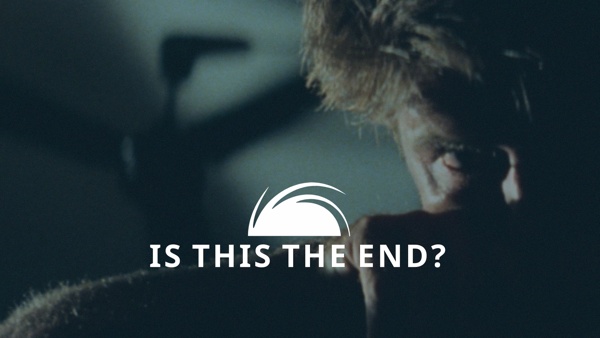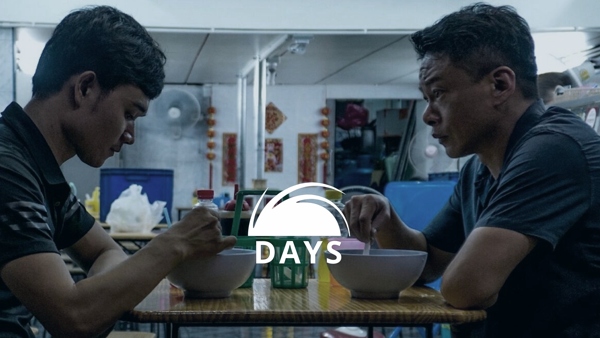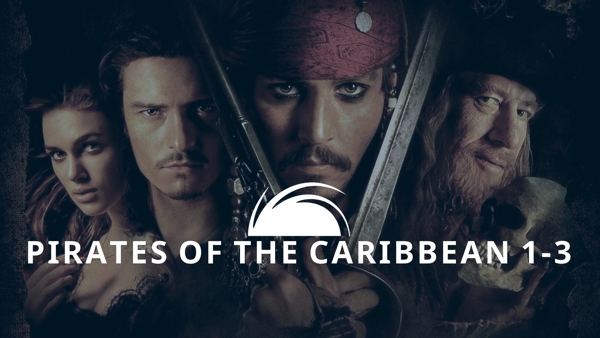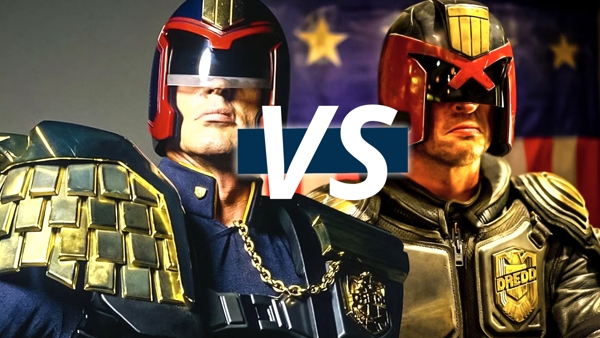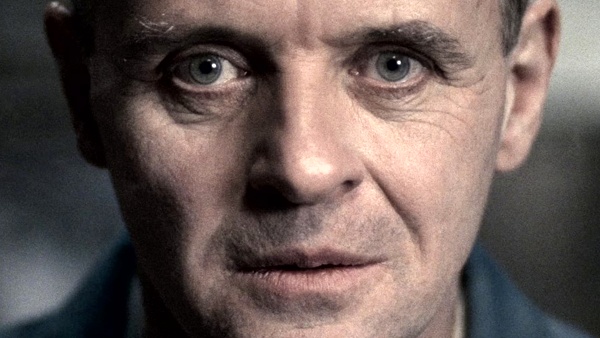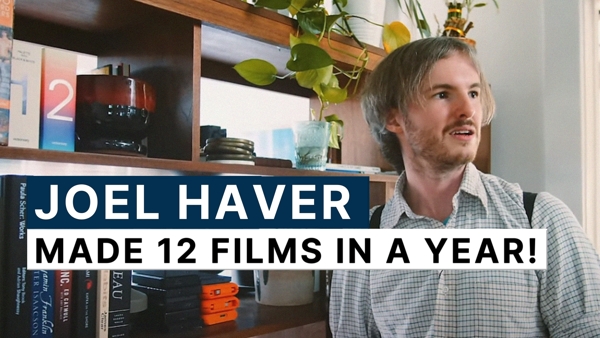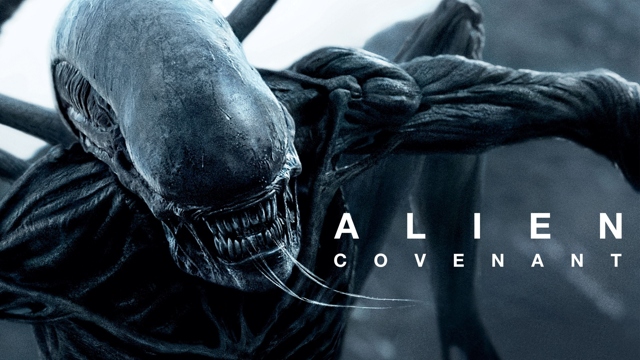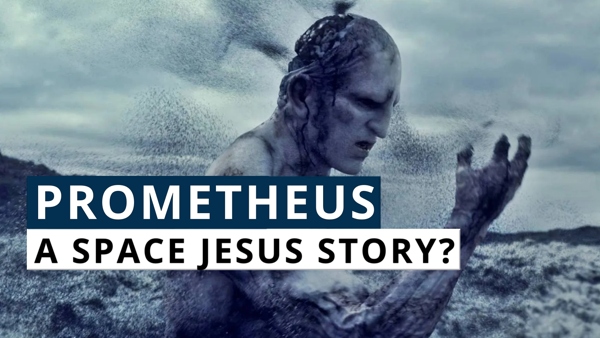#200 – Folie à deux cents
Is this the end, beautiful friend? Karri and Henrik swim down memory lane, going through all their most memorable moments from the podcast over 7 years and 200 episodes. Time to pop the champagne!
Over the years, the duo has made observations about the natural evolution of the show. In its humble beginnings, the episodes followed a strict scene-by-scene analysis and near-obsessive levels of breakdown – from the tiniest technical details such as Michael Myers’ gait in Halloween 4 (1988), to theories about space-travel times and synodic planetary alignments in A Trip to Mars (1918), and the merciless tear-down of Cubby Broccoli’s science facts in Moonraker (1979).
While contextual analysis has always played a noticeable role in The Flick Lab, the episodes have increasingly detached themselves from technically intimate film analysis and shifted toward cultural, thematic, and socio-political readings. With this in mind, what does it all mean regarding the future of the podcast? Karri has spent extraordinary amounts of time trying to find the answer. Now, the answer has arrived.
The pair also touch on topics such as obscure films, episode length, radio vs. podcasting, parasocial relationships, ignoring the audience to remain truthful to yourself, why the podcast has survived this far, mad and unhealthy podcast enthusiasm, reading vs. internet addiction, cynicism in cinema, and what was gained vs. what was given.
Films / episodes mentioned or referenced in this episode:
Andalusian Dog
Apocalypse Now
The Bear (TV)
The Big Lebowski
The Bridge
Bunny the Killer Thing
Call Me By Your Name
The Chaser
Come and See
Coriolanus
Corpus Christi
Days
Die Another Day
Dirty Harry
Drive My Car
Elephant Sitting Still
Going South
Halloween
Halloween 5: The Revenge of Michael Myers
The Hellraiser Franchise
Hong-kil dong
Horses of God
In the Name Of…
Judge Dredd
Jurassic Park
Jurassic World Dominion
Jurassic World Rebirth
Like Someone In Love
The Living Daylights
Mahjong
The Martian
No Man’s Land
Nobody Knows
Outer Space
Parasite
Pocahontas
Possession
Pretty Village, Pretty Flame
Satantango
Sprinkler Sprinkled
Stray Dogs
Suicide Room
Sugar Cane Alley
Summer at Grandpa’s
Suspiria (2018)
Titanic
Uncle Boonmee Who Can Recall His Past Lives
Uninvited
Warsaw ’44
The Wailing
White Hunter, Black Heart
The Yellow Sea
People mentioned or referenced in this episode:
Tapani Maskula
Kalle Kinnunen
Winston Churchill
Tsai Ming-liang
Previous guests or co-hosts re-appearing, pre-recorded:
Zachary Byrd (previous co-host)
Nick Vaky from Mint Volcano (Taiwanese New Cinema / Interview)
Luke Liu from Mint Volcano (Taiwanese New Cinema / Interview)
Nezar Andary (The Cinema of Mohammad Malas)
Yana (Six Degrees of Celebration)
Anas (Horses of God)
Annie (Uncle Boonmee Who Can Recall His Past Lives)
Pedro from Plan-Séquence
Hosted and edited by Karri Ojala and Henrik Telkki.
The Flick Lab theme tune performed by Nick Grivell.
Podcast feed image by raul olave from Pixabay.
Youtube version intro from Yi Yi.
Youtube version outro song The Doors – The End.
#199 – Tsai Ming-liang’s Days (2020) – Peace, Pain and Letting Go – Film Analysis
A disillusioned, recuperating, lonely man. Another man in a faraway country. Both looking for something. A chance encounter. Peace, pain, departure. Tenderness, impermanence, aching and beyond the senses. Equanimity, disillusionment, hunger, growth. Touch, the passage of time, and letting go. And also a lot of really damn long takes.
Karri also deeply reflects on how Tsai’s sense of emotional reorientation towards cinema strongly resonates with Karri and reflects his journey with The Flick Lab.
Films covered in this episode:
Days (2020)
Hosted by Karri Ojala and Henrik Telkki. Edited by Karri Ojala. The Flick Lab theme tune performed by Nick Grivell.
#198 – Pirates of the Caribbean 1-3 – Still Seaworthy, or Rotting Below Deck?
In this episode, we dive deep into the first three Pirates of the Caribbean films directed by Gore Verbinski – The Curse of the Black Pearl, Dead Man’s Chest and At World’s End. Why did a movie based on a theme park ride redefine the blockbuster? Is Jack Sparrow such an iconic character as is generally accepted? Karri and Henrik hold many split views – who could’ve seen that coming.
Films covered in this episode:
Pirates of the Caribbean: The Curse of the Black Pearl (2003)
Pirates of the Caribbean: Dead Man’s Chest (2006)
Pirates of the Caribbean: At World’s End (2007)
Hosted by Karri Ojala and Henrik Telkki. Edited by Karri Ojala. The Flick Lab theme tune performed by Nick Grivell.
#197 – Judge Dredd vs Judge Dredd: Political Satire or Fascism? – Film Analysis
From 1995’s Stallone spectacle to 2012’s Karl Urban reboot, Judge Dredd straddles a bizarre line between political satire and fascist power fantasy. In this episode of The Flick Lab, Karri and Henrik break down the paradox; is Dredd a warning against authoritarianism, or a celebration of it? Even more importantly, what may be the behavioral consequences to our societies? We’ll discuss the character’s comic book origins, compare the two movies, and explore how a supposed critique of fascism can still end up fueling the very fantasy it condemns.
Films covered in this episode:
Judge Dredd (1995)
Dredd (2012)
Hosted by Karri Ojala and Henrik Telkki. Edited by Karri Ojala. The Flick Lab theme tune performed by Nick Grivell.
#196 – Hannibal Lecter: Complete Film Series Analysis (Manhunter to Hannibal Rising)
The Silence of the Lambs catapulted Anthony Hopkins to global stardom. Thomas Harris’ novels have lead the series forward, even by forcing the writer’s hand to continue the story. What has made the films resonate? Has the series been standing largely on his shoulders, or is there more to it? Why do audiences and even the author increasingly sympathize with a serial killer character?
Films covered in this episode:
Manhunter (1986)
The Silence of the Lambs (1991)
Hannibal (2001)
Red Dragon (2002)
Hannibal Rising (2006)
Hosted by Karri Ojala and Henrik Telkki. Edited by Karri Ojala. The Flick Lab theme tune performed by Nick Grivell.
#195 – Possession (1981) – A Film Like No Other
At its surface, Possession (1981) can be described as an exploration of identity dissolution, grief, and transformation. However, this characterization scarcely captures the film’s psychological intensity, depth and impact. It stands as one of the most disturbing films we’ve analyzed on The Flick Lab.
Films covered in this episode:
Possession (1981)
Film recommended by Nick Vaky from Mint Volcano Youtube channel.
Hosted by Karri Ojala and Henrik Telkki. Edited by Karri Ojala. The Flick Lab theme tune performed by Nick Grivell.
#194 – 12 Films in 12 Months?! Indie Filmmaker Joel Haver’s Wild Experiment – Film Analysis
Joel Haver is a Canadian indie filmmaker and YouTuber known for his experimental film projects. In an ambitious move last year, he set out to create 12 films in 12 months. What might have motivated such a demanding challenge? And how could this rapid production schedule influence the perceived quality of the films? With modern technology drastically lowering the barrier to entry for aspiring filmmakers, how much do tools versus talent truly impact the final product? The Flick Lab decided to explore this question by watching two of Haver’s films.
Note: This episode was recorded in November 2024, prior to Haver having released all of his films on his Youtube channel, which explains our skepticism of him being able to complete the challenge on time. Mr. Haver got the last laugh here.
Films covered in this episode:
The Text (2024)
Anyone Else But Me (2024)
Hosted by Karri Ojala and Henrik Telkki. Edited by Karri Ojala. The Flick Lab theme tune performed by Nick Grivell.
#193 – Alien: Romulus (2024) – Worth the Hype?
Is Alien Romulus the greatest Alien movie since James Cameron’s Aliens, or an overhyped letdown? Let’s find out.
Films covered in this episode:
Alien: Romulus (2024)
Hosted by Karri Ojala and Henrik Telkki. Edited by Karri Ojala. The Flick Lab theme tune performed by Nick Grivell.
#192 – Alien: Covenant (2017) – End of the Unended – Film Analysis
Following Ridley Scott’s Alien-prequel-spinoff Prometheus came Alien Covenant. It was expected to deliver both on audience expectations (Aliens appearing in an Alien franchise) and to provide some answers to the questions presented by Prometheus. In a way, neither would be delivered on. What’s the legacy of Alien Covenant, now that the further sequels to Ridley Scott’s storyline have been effectively cancelled?
Films covered in this episode:
Alien: Covenant (2017)
Hosted by Karri Ojala and Henrik Telkki. Edited by Karri Ojala. The Flick Lab theme tune performed by Nick Grivell.
#191 – Prometheus (2012) – Was Jesus an Alien, Ridley Scott? – Film Analysis
Prometheus is the return of director Ridley Scott to the Alien franchise. This is in fact a standalone story based on the same Alien universe, but not an Alien movie per se. It provides ample story elements, but are most of them driven to any conclusion? Do the writers and the director even know the meaning of their own plot threads? Karri and Henrik also discuss the film’s atmosphere, the character’s decision-making, Ridley’s ‘space jesus’ concept, and other topics.
Films covered in this episode:
Prometheus (2012)
Hosted by Karri Ojala and Henrik Telkki. Edited by Karri Ojala. The Flick Lab theme tune performed by Nick Grivell.

